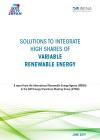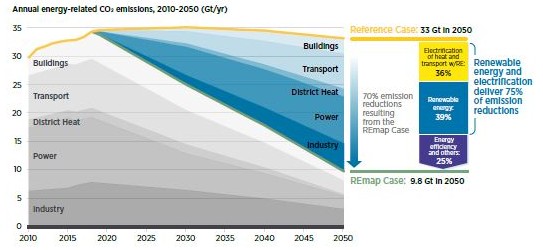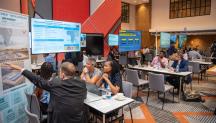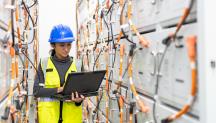

-
-
IRENA (2019), Solutions to integrate high shares of variable renewable energy (Report to the G20 Energy Transitions Working Group (ETWG)), International Renewable Energy Agency, Abu Dhabi.
Copied
/-/media/Files/IRENA/Agency/Publication/2019/Jun/IRENA_G20_grid_integration_2019.pdf
Copied
Solutions to integrate high shares of variable renewable energy
Newsletter
Reducing energy-related carbon dioxide (CO2) emissions is essential to rein in the rise of global temperatures. This report examines ways for G20 countries to decarbonise their electricity systems by integrating high shares of solar and wind power.
Japan, holding the G20 presidency in 2019, asked the International Renewable Energy Agency (IRENA) for a status and outlook report on these variable renewable energy (VRE) sources. IRENA has engaged with successive G20 presidencies since 2015 on a toolkit for renewable energy deployment. Increasingly, the organisation has aligned its G20 toolkit with the Paris Agreement and explored investment implications.
Technological innovation, coupled with sustainable development policies and the need to combat climate change, are driving the accelerating shift to renewables worldwide. Smart digital technologies promise greater system flexibility, permitting maximum use of low-cost renewable power, including for transport. New applications include charging of electric vehicles and renewable-based production of hydrogen.
Renewables and energy efficiency, boosted by electrification, could provide 90% of the necessary reductions in energy-related carbon emissions to limit the global rise in temperature to well below 2°C, according to IRENA’s analysis. Renewables and electrification alone would provide 75% of the reductions needed.
Energy decarbonisation options, with contributions by sector

Source: IRENA (2019), Global Energy Transformation: A roadmap to 2050.




